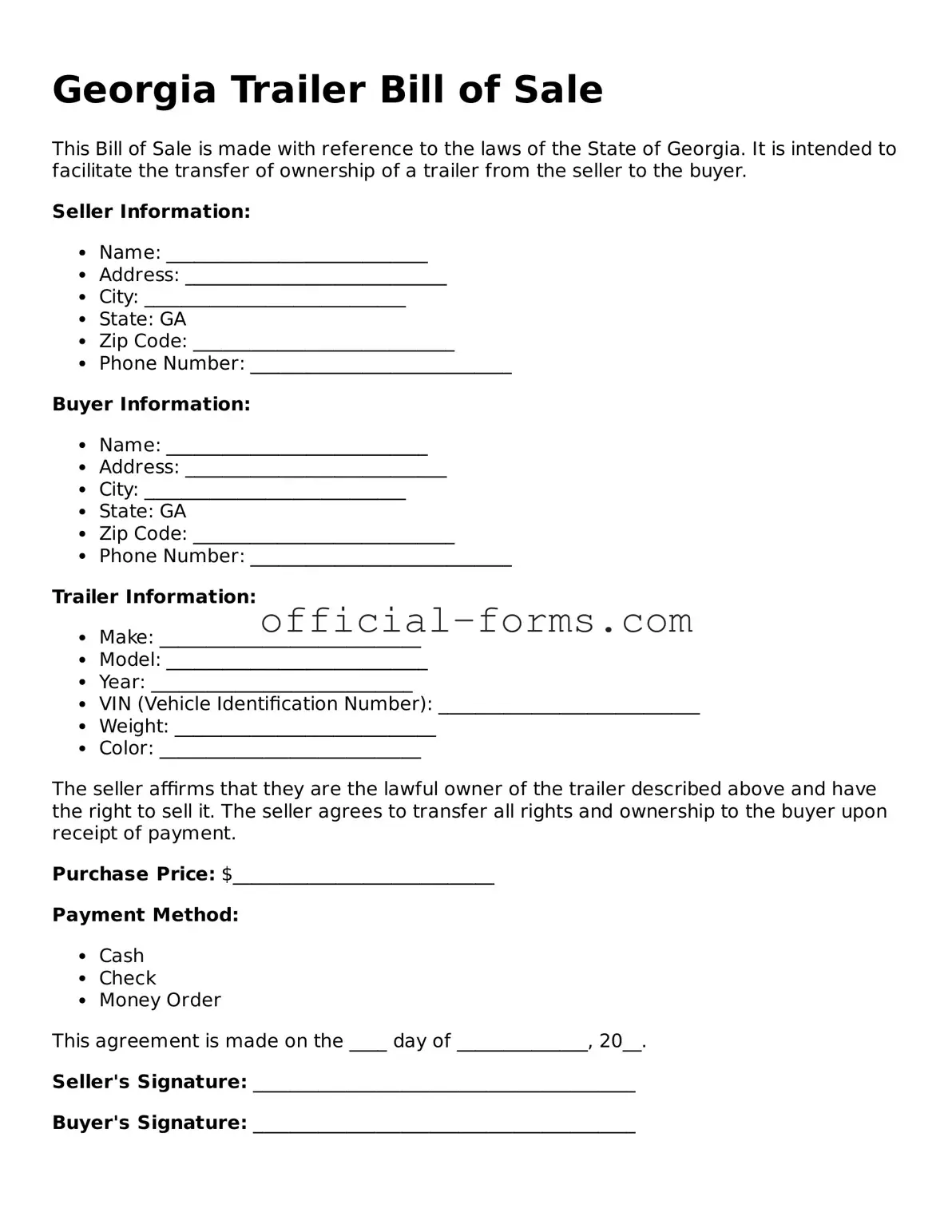Official Georgia Trailer Bill of Sale Document
The Georgia Trailer Bill of Sale is a legal document used to transfer ownership of a trailer from one party to another. This form provides essential information about the trailer, including its make, model, and identification number. Completing this document ensures that both the seller and buyer have a clear record of the transaction.
Open My Trailer Bill of Sale Now

Official Georgia Trailer Bill of Sale Document
Open My Trailer Bill of Sale Now
Don’t leave your form incomplete
Finish Trailer Bill of Sale online quickly from start to download.
Open My Trailer Bill of Sale Now
or
➤ PDF
